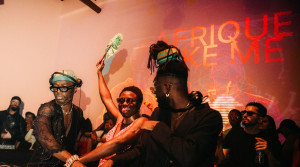Becoming a vocalist was a dream for me, but after attending and abruptly leaving a post-secondary institution that tried to teach me by constantly discouraging me from “singing Black” (their words, not mine), I was dejected and demoralized.
I had absolutely no idea where to turn for guidance.
Until one day, when I stopped in at a jam session at a club called “Dimples”. The musicians welcomed me on stage, where I performed Billie Holiday’s “God Bless The Child”. I don’t remember my performance, but I vividly remember what happened next.
When the band took a break, the singer, keyboardist and drummer all came over and crowded into my booth- boxing me in with no escape in sight: “What’s your name again? Where are you from? How long have you been singing? Whose kid are you?”
The three musicians peppered me with questions and listened to each of my answers, and then, they began to critique my performance. Even though it never entered my mind to ask them for advice, it didn’t really matter, because their comments on my performance started coming hard and fast: “Don’t forget to breathe. Learn what the lyrics mean! Take your time and don’t forget to listen to the instruments.” I listened intently and nodded my head at each new directive, while waiting for the inevitable comment that I had been hearing over and over again from my teachers: “Try not to sing so Black”, but those words never came. Instead, they gave me words of encouragement that have stayed with me for 41 years.
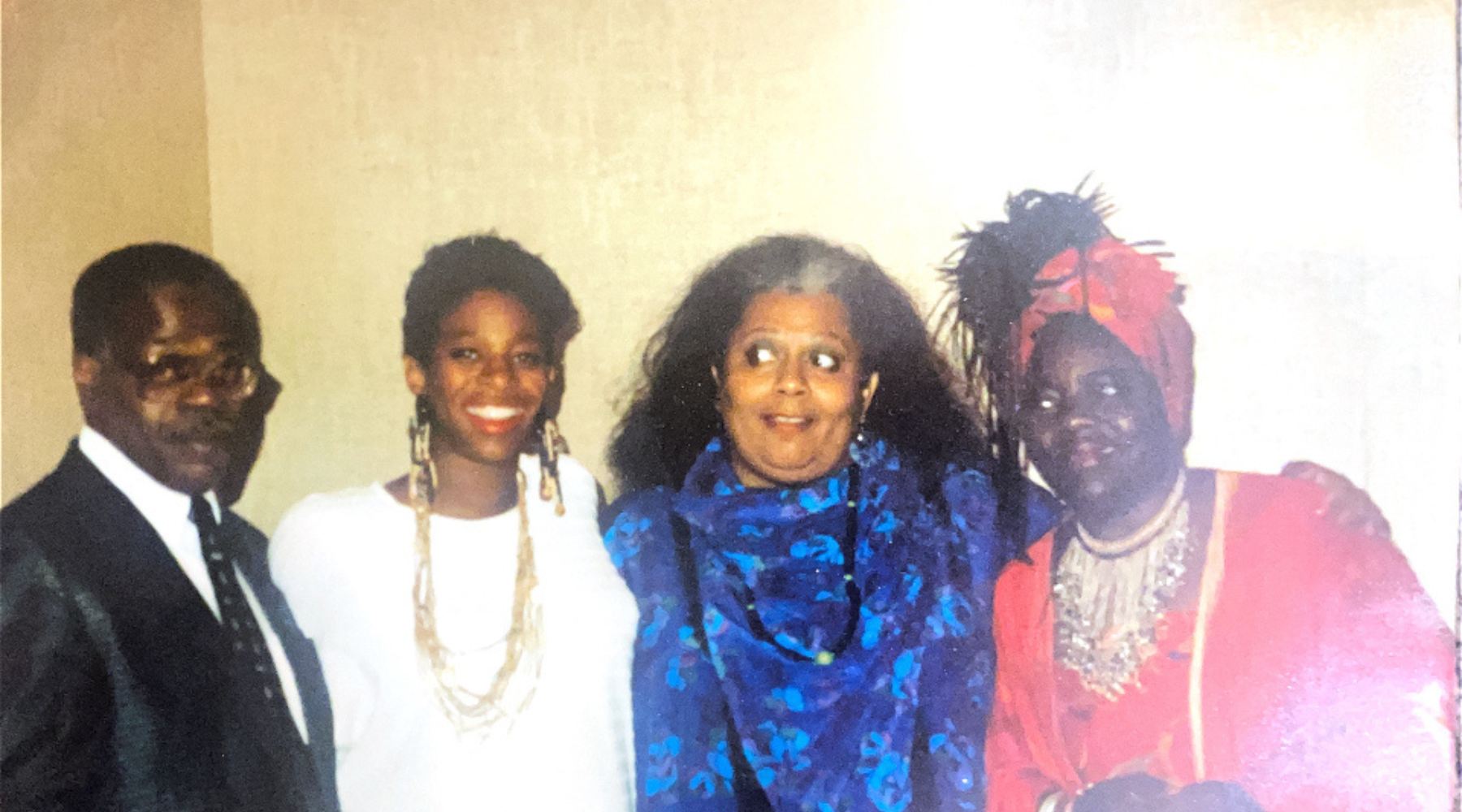 Left to Right: Ron Small, Shakura S'Aida, Jackie Richardson and Salome Bey
Left to Right: Ron Small, Shakura S'Aida, Jackie Richardson and Salome Bey
Those musicians, Kingsley Éttienne, Betty Richardson and Archie Alleyne gave me the confidence to keep pushing forward. A year later, in 1985, I began working as an assistant stage manager on a play written by Salome Bey, produced by her husband, Howard Matthews, Joe Sealy and Archie Alleyne. The play, “Madame Gertrude” starring Jackie Richardson and Ron Small and featuring Bill Sharpe on bass, Joe on piano and Archie on drums, became my new classroom and the foundation for the artist I am now.
Often, I am struck by how few Black musicians I regularly see playing in clubs. It’s been disappointing to see how segregated many Toronto bands are. Many of the top jazz, blues or soul bands lack colour and sometimes (in my eyes) lack soul - not because their musicians aren’t amazing, but because how is it possible to not have an integrated band, when you are playing music that was created through a Black lens.
So how important is race when we speak about music? Is it about race or culture; both or neither? I honestly don’t know. I do know that often when I am asked to perform and I ask if the band is diverse in terms of race, gender, etc., very few bandleaders reply in the affirmative. A true irony is taking music created by Black songwriters and musicians during a time when African Americans were being oppressed and excluded and then trying to recreate that same music while excluding present-day Black musicians (intentionally or otherwise).
Are you a music lover and/or a musician? Do you fancy yourself a keeper of history? Here are a few names for you to add to your database: Phyllis Marshall, Ada Lee, Cy Mclean, Eleanor Collins, Curtis Bailey, Ricky Day, Doug Salmon, Eric Mercury, Frank Wright, Wray Downes, Eugene Smith, Valeire Abbott Hunt, Jay Jackson, The Girls (Colina Phillips, Sharon Lee Williams, Shawn Jackson) and many more names that are listed on the Black Music Archives, the Canadian Music Encyclopedia and all over the interweb.
{https://www.instagram.com/p/DKiIPVIPxCk/?hl=en&img_index=1}
Black musicians have always been a part of the Toronto music scene - even when they faced segregation and exclusion from the Musicians’ Union, many downtown clubs and by default, many of the popular bands of the time.
Black musicians and vocalists being relegated to music rooms with lower union grading meant lower pay and fewer opportunities for advancement. It also meant that many underground and after-hours spots became the go-to gathering places for all musicians and music lovers in the city. Ironically, these venues became training grounds and showcase rooms for our musicians, many of whom then went on to play with top musicians like Cab Calloway, Billie Holiday, Duke Ellington, Nina Simone and Louis Armstrong.
That was a long time ago, right? Well, even in this day and age, Black jazz musicians are kept out of popular jazz/funk/soul bands. It’s rare to get a call from those bands when they are looking for replacements.
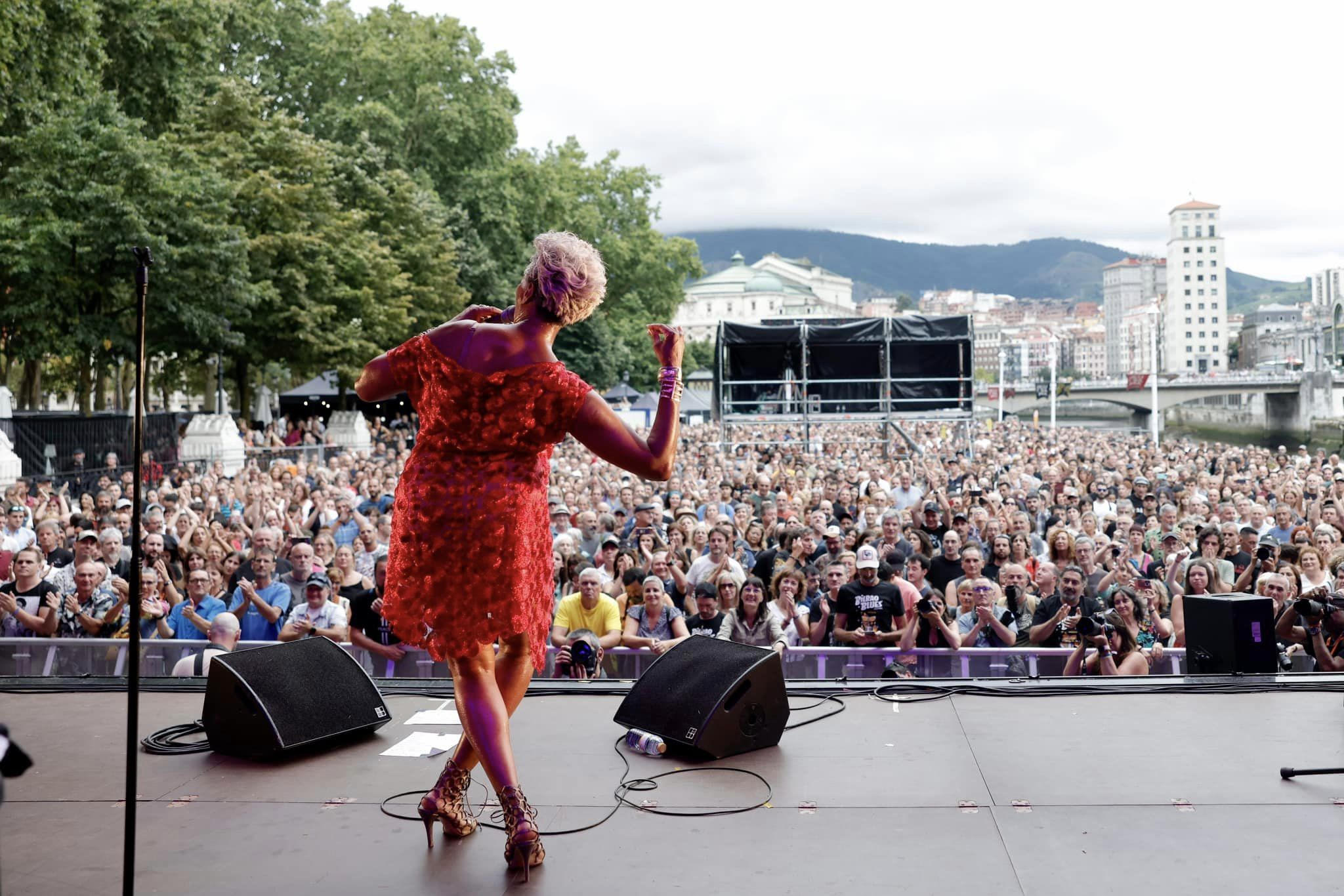 Shakura S'Aida on stage.
Shakura S'Aida on stage.
It’s tiring being the Black singer in front of a white band every time. Non-Black musicians should notice when we are not in the room, on the stage, or part of their community. Integrated spaces should be the norm.
But here we are, in 2025 and still talking about integration.
So what keeps me going?
Officer for the Order of Canada and my favourite jazz drummer of all time, Archie Alleyne often said, “without the past, there is no future”. Musical mentors like him taught me to work hard, stay focused and never let go of my community. Knowing that Salome Bey was an actor, a singer, a playwright, a record producer, a band leader, a music curator and an event producer means that even though I might get scared, frustrated, discouraged and want to give up while doing any or all of these same things, I never do.
Instead I stand tall, confident and grounded, because the Original Queen Bey taught me that all that I do has already been done and done well.
We all - Black, Indigenous, Asian Diasporic, South Asian, Latino, white, Queer, women, men, trans, non-binary - deserve to know the names and power of our musical ancestors. We deserve to know that we are capable of greatness, because Great Ones brought us here and they stand behind, beside and in front of us, witnessing all of our good work and greatness. We stand On Their Shoulders. Gratefully.
On Their Shoulders is a once-in-a-lifetime concert celebrating the African Canadian artists who have made invaluable contributions to the Toronto music community.
Backed by an all-star house band led by award-winning and JUNO-nominated musical director Eddie Bullen, featuring acclaimed artists like JUNO-nominated singer-songwriter Brooke Blackburn and GRAMMY Award-winning drum phenom, Larnell Lewis, this special evening of music celebrates the foundation of Toronto’s jazz scene.
Get tickets at https://torontojazz.com/
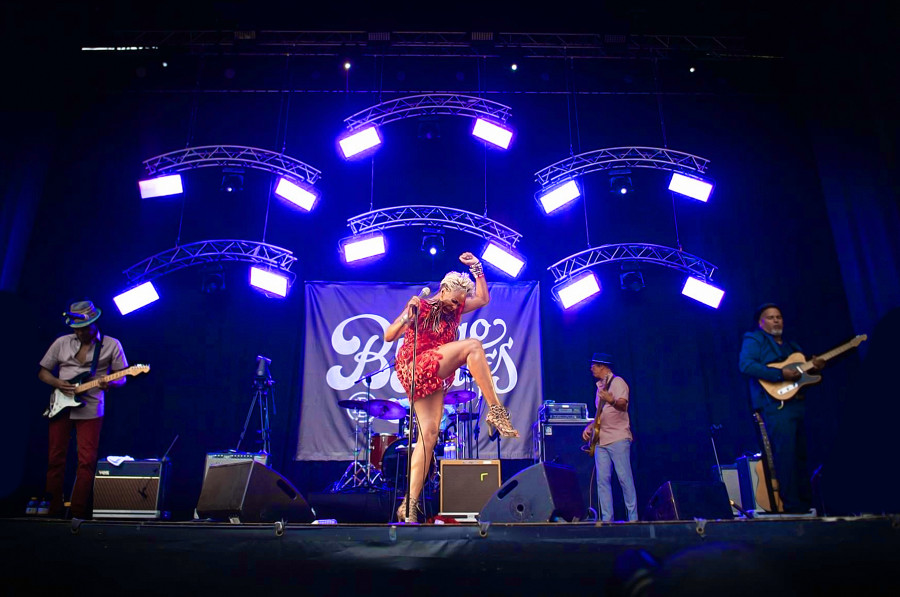
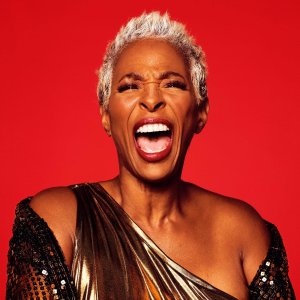 By
By 

